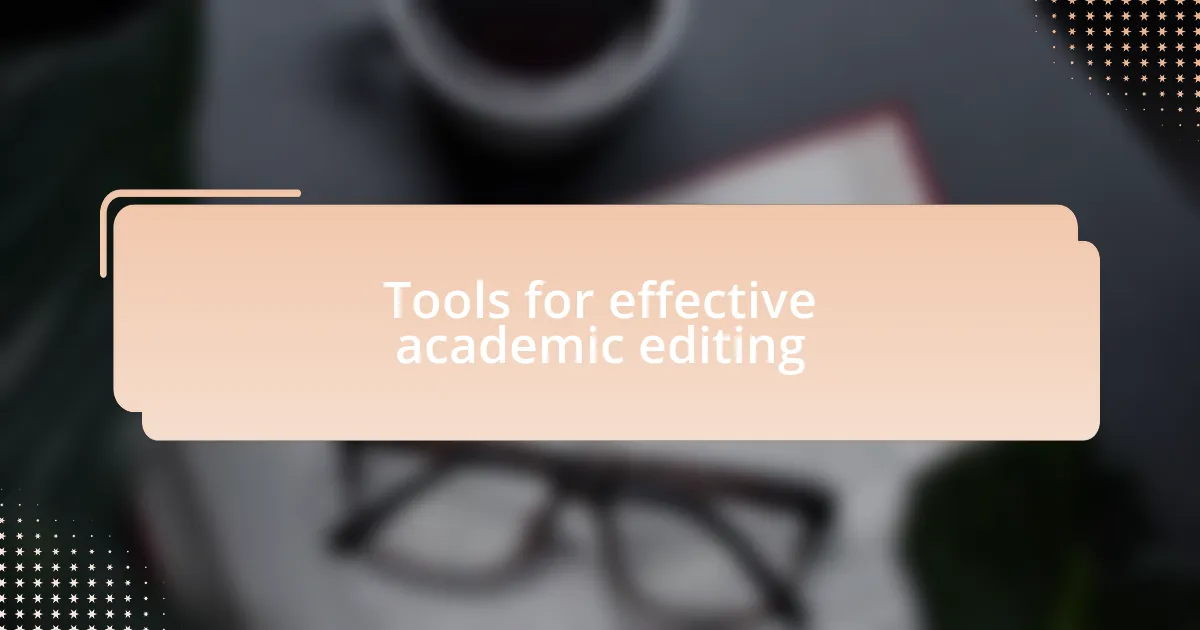Key takeaways:
- Tools like Grammarly and Hemingway enhance writing by identifying overlooked mistakes.
- Zotero streamlines citation management, allowing more focus on content development.
- Collaborative platforms like Google Docs enable valuable peer feedback, improving final outputs.
- Teamwork in editing fosters community and enhances the overall editing process.

Tools for effective academic editing
When it comes to academic editing, tools like Grammarly and Hemingway can truly transform your writing. I remember when I first discovered grammar checkers; my drafts felt cleaner, and mistakes I typically overlooked were highlighted. Have you ever caught yourself missing simple errors just because you’re too close to your work? These tools can provide that necessary distance.
Another essential tool is Zotero for managing citations. The process of gathering references used to overwhelm me, leaving me doubtful about proper formatting. However, once I started using Zotero, everything became streamlined, allowing me to focus on the content rather than the tedious details. Isn’t it a relief to have more time to refine your ideas instead of stressing over citation styles?
Finally, I can’t overstate the value of teamwork in the editing phase. Using collaborative platforms like Google Docs, I’ve experienced firsthand how peer feedback sharpens the final product. Have you ever shared your work with a colleague only to find that a simple suggestion completely changed your perspective? Embracing collaboration not only enhances the editing process but also fosters a sense of community among researchers.